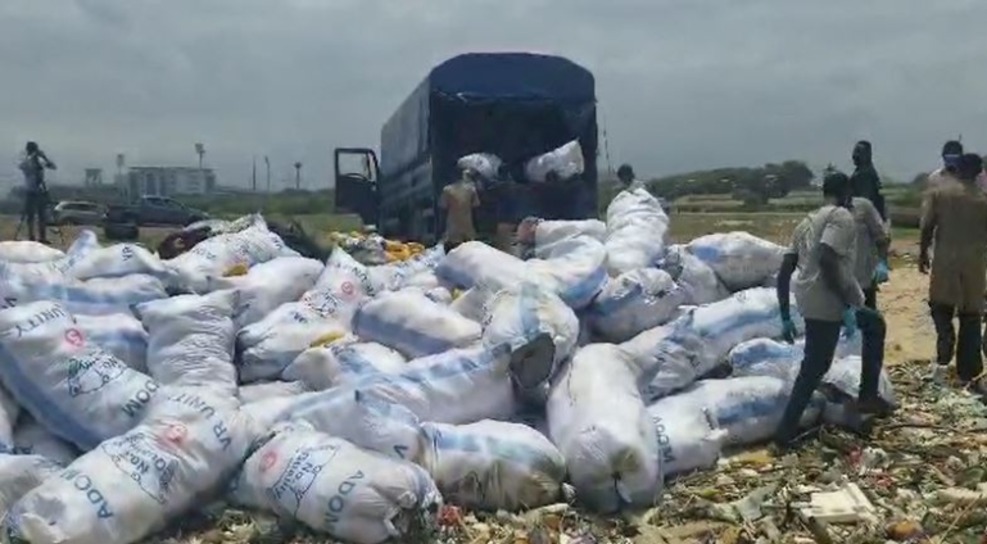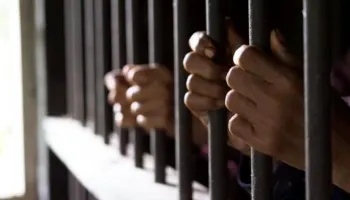International
Sudan crisis: From Ruto to Sisi, leaders vie to drive peace process
Published
1 year agoon
By
Melody 911FMIn a clear sign of their seriousness to end the escalating conflict in Sudan, four East African states, led by Kenya, are pushing for the deployment of a regional force to protect civilians and ensure that humanitarian aid reaches millions of people trapped in the war zone.
But getting the agreement of the warring factions will be a tough call, as they have shown no interest in anything other than military victory since the conflict broke out in mid-April.
The military, headed by Gen Abdel Fattah al-Burhan, controls most of eastern and central Sudan, and is fighting to hold on to its bases in the capital, Khartoum.
The rival Rapid Support Forces (RSF), led by Gen Mohamed Hamdan Dagolo, known as “Hemedti”, has made advances in Khartoum, where its fighters have been accused of murders, rapes and occupying and pillaging hospitals.
The military bombs RSF positions relentlessly in the capital, reportedly causing widespread civilian casualties.
Over the media horizon, horrifying violence rages in Sudan’s western region of Darfur.
The RSF has overrun most of the region. Along with their allied Arab militia, RSF fighters have driven out many thousands of ethnic Masalit from their historic homeland in western Darfur.
They burned the palace of the sultan, the group’s customary leader. When the governor, Khamis Abbakar, called it “genocide” men in RSF uniform abducted and killed him.
More than 160,000 Masalit refugees have fled across the border to Chad.
The RSF also ransacked the city of Zalingei, home to the Fur community, and encircled the two biggest cities in the region, al-Fashir and Nyala.
Many Darfuris fear this is the culmination of a long-standing plan to transform the ethnically-mixed region into an Arab-ruled domain.

The urgent need in western Darfur is civilian protection. Ironically, the United Nations-African Union Mission in Darfur had exactly this mandate. But it was withdrawn two years ago in a decision that now seems terribly misguided.
RSF forces are also besieging the capital of North Kordofan state, El-Obeid.
Should they capture it, the military will survive only in pockets west of the River Nile.
In South Kordofan, a rebel group, the Sudan People’s Liberation Movement-North, waging its own insurgency for the past 12 years, has advanced towards the state capital, Kadugli, as the military finds itself over-stretched fighting the RSF.
Suddenly, there is a flurry of diplomatic activity. But there is no agreement on who should be in the lead.
Since the second week of the conflict, the US and Saudi Arabia have been convening ceasefire talks in the Saudi city of Jeddah.
But hopes for a cessation of hostilities – the most recent over the Eid al-Adha holiday – have come and gone without a slackening in the pace of violence.
The US and Saudi Arabia say they will float a new proposal in the coming days. They have also made efforts to bring the United Arab Emirates (UAE) on board, which is significant because the UAE is seen as the major backer of the RSF and, according to some reports, continues to arm them. The UAE has not commented on the reports.
Just over a month ago, unimpressed with the low energy of the African Union (AU) in responding to the crisis, East African leaders launched their own initiative under the auspices of the regional body, Igad.
A quartet – made up of the leaders of Kenya, Ethiopia, South Sudan and Djibouti – was appointed to seek a ceasefire, humanitarian access and political dialogue in order to restore Sudan’s transition to democracy.

Kenya’s President William Ruto – who heads the group – has been outspoken, describing the war as “senseless”, condemning both warring parties for using their military power “to destroy the country and kill civilians”, and warning that there are “already signs of genocide” in Darfur.
It is this group of leaders, meeting in Ethiopia’s capital Addis Ababa on Monday, that took the first steps towards organising a regional intervention force.
Their second track is working with the Americans and Saudis to convene a face-to-face meeting between the warring generals – Burhan and Hemedti – to secure a ceasefire.
Track three is an “inclusive political process” to start by August. That requires bringing civilian representatives together, and giving them enough political backing so that they have real leverage in talks, as part of efforts to ensure that Sudan returns to the path of democracy.
But Gen Burhan rejected the initiative, claiming that Mr Ruto is biased towards the RSF. He also accuses leaders of some of the civilian parties of siding with Gen Hemedti – they counter that Gen Burhan has mobilized Islamist groups on his side. He first agreed, then refused, to attend Monday’s meeting. A delegate from the RSF attended.
The military claims the legacy and legitimacy of government, though it took power in a coup with the RSF in 2019, before their leaders fell out, triggering the civil war.
The military certainly has a stronger claim to government than the RSF, which is a paramilitary group run by the Dagolo family, making money from its gold mines, mercenary activities and business empire.
It has shown no interest in governing, and has allied itself with Arab supremacists from Darfur and neighbouring countries.
Gen Burhan’s handicap is that his forces cannot protect either the state or the population. In fact they don’t even control the capital, the customary minimum threshold for being accepted as a legitimate government in Africa.
The US initially failed to signal its support for Mr Ruto’s initiative, preferring to stick with the AU. But it has come around to engaging with what is the highest-level African intervention thus far.
Sudan’s conflict is already destabilizing South Sudan. Gen Hemedti demanded that South Sudan cease paying the Sudanese government – meaning Gen Burhan – for use of the oil pipeline to Port Sudan, the only export route for that country’s main source of revenue. South Sudan has not yet commented on the demand.
Over the weekend, Mr Ruto travelled to Chad to confer with President Mahamat Déby. Deeply fearful of the potential of the Darfur crisis to destabilize his country, Mr Déby held a crisis meeting with Darfuri leaders, including the commanders of the former rebel groups, to discuss how best to respond.
Egypt is already hosting more than 250,000 newly arrived refugees from Sudan. It fears that the ongoing destruction of Khartoum is leading to the inexorable exodus of the country’s entire middle-class – Egyptians speak of two million and even more.
President Abdul Fattah al-Sisi announced a joint initiative with Qatar and is convening its own summit meeting this week.
Egypt’s sympathies lie openly with Gen Burhan, which helps explain why he is stalling on the Igad plan. Mr Sisi sees Gen Burhan as his most reliable ally in Sudan, and is ready to tolerate a return of Sudanese Islamist groups – which have the backing of Qatar and Turkey – if it means stabilising the country.
But there are fears in some diplomatic circles that rival African and Arab peace processes will cancel each other out.

The United Nations has been sidelined. Its special representative for Sudan, Volker Perthes, was chosen for his technical skills in supporting institution-building during the now-aborted transition to democracy, rather than experience in mediating a brutal conflict.
Additionally, Gen Burhan has declared him persona non grata. Most Sudanese are dismayed by the UN’s failures in Sudan and don’t want to see it leading a diplomatic effort.
Similarly, Sudanese worry that the European Union’s obsessive focus on migration means that they will deal with any leader who promises to stem the mass exodus.
Some Sudanese blame the EU for supporting the RSF in the past as part of a plan to control the country’s borders – a claim the EU disputes.
The challenge of peace in Sudan is huge. The African leaders’ plan is the boldest and most comprehensive yet, but there are still many roadblocks on the path to peace – not least the refusal of the warring sides to accept that there is no military solution to the conflict.
Source: BBC
You may like
-


Bawumia- “Mahama’s Economic Record Bad”
-


Peter Okoye reacts to alleged song ownership by twin brother
-


DNA test more important than naming ceremony- Don Jazzy
-


NPP, NDC have mismanaged Ghana – GUM
-


T-bills: Government records 3.60% oversubscription; but cost of borrowing surges
-


2025 AFCON qualifiers: Black Stars to hold first training session in Accra today

There was drama at an Accra Circuit Court when two out of three accused persons admitted stealing goats at Teshie Camp Two area in Accra.
Emmanuel Agyei, aka Obama, a fisherman and David Agyei, a borehole driller, pleaded guilty to the charges of conspiracy and stealing.
The accused persons, said it was true that they had been stealing goats and that on August 8, 2024, they stole locally bred goats within the vicinity, the Ghana News Agency (GNA) reports.
The police is holding them for allegedly stealing nine foreign goats from Germany valued at $13,500 belonging to one Seidu Yakubu, the complainant in the case.
Emmanuel Agyei told the court that: “The goat I stole doesn’t belong to the complainant. I have not seen the kind of goats the police are talking about. I have shown the complainant and the places where I stole the goats. I don’t know anything about the kind of goats the police are talking about in the pictures taken.”
In the case of David Agyei, he told the court that, “We did not steal from the complainant, the goats we stole were African breed. We are not the group of people who sell to the buyer.”
The court, after listening to the accused persons, convicted them but deferred their sentence to September 2, 2024.
Baba Musah, aka Baba Talatu, a butcher, who pleaded not guilty to the charge of dishonestly receiving, has also been remanded into police custody.
The police said three accomplices, whose names were given as Nat, Aapah, Boola Gee, were at large.
The prosecution, led by Superintendent of Police Augustine Yirenkyi, said the police were searching for other accomplices on the run.
The prosecution said the complainant, Yakubu Seidu, was a driver and an animal farmer at Teshie Camp 2.
The court heard that on Sunday, August 11, 2024, at about 0400 hours, the complainant woke up and detected the theft of nine of his foreign-breed goats.
On the same day, the prosecution said the Police Intelligence Directorate (PID) received intelligence about a syndicate that snatched victims’ cars and used them to steal goats, and hide at Teshie and James Town.
The prosecution said the PID mounted surveillance and arrested Emmanuel Agyei, David Agyei and Baba Musah, but the other accomplices managed to escape.
During interrogation, Emmanuel and David admitted the offence and told the Police that they used to steal and sell.
Emmanuel and David led the Police to Boola Gee’s house at James Town, where four sheep and two goats were found in a blue-black 2002 model Honda CRV with registration number GN 438-14 and a blue-black Nissan Altima with registration number GT3107-18.
Emmanuel and David admitted to the Police that they stole with one Nathaniel and Aapah and sold the livestock to Boola Gee.
The court was told that Baba Musah admitted having bought five goats from Emmanuel, David and Nathaniel at GH₵2,500.
On August 12, 2024, the prosecution said the complainant came to the Directorate and identified two goats as his.
Crime
Police destroy large quantity of narcotics by court order
Published
4 months agoon
August 9, 2024By
Melody 911FM
The Criminal Investigation Department (CID) of the Ghana Police Service has destroyed a significant quantity of narcotic substances following orders from the Accra Circuit Court.
The items destroyed included 248 fertilizer sacks, 315 wraps, 24 sachets, and 68 compressed slabs of various narcotics, along with three medium-sized buckets of heroin.
“We are here to destroy some substances; cocaine, dry leaves thus cannabis, after those cases have been dealt with by the court,” Registrar at the Accra Circuit Court Prosper Kingsley Damakah revealed to journalists
The substances were seized and used as evidence in cases tried by the circuit court between 2020 and 2024.
“Some of the cases started in 2020. The people were arrested by the Police, charged and brought to court. Judgments have been delivered in the cases’ Mr. Damakah clarified.
The burning of the narcotics was carried out at the shore behind the Black Star Square in Accra and was witnessed by representatives from the Narcotics Control Commission and the Judicial Service.
Crime
4 remanded in Tumu for alleged robbery of MoMo vendor
Published
4 months agoon
July 26, 2024By
Melody 911FM
The Tumu Magistrate Court in the Sissala East Municipality of the Upper West Region has remanded four individuals in custody on charges of allegedly robbing a mobile money vendor.
The suspects have been under police surveillance in Tumu due to a series of robberies targeting commuters in the Sissala East Municipality.
Their arrest was the result of an investigation into an attack on the mobile money vendor.
The suspects, Sumaila Tembieru (a mechanic), Hamidu Muniru (a farmer), Sumaila Issahaku (also a mechanic), and Salifu Abu (a farmer), were apprehended on July 19 following thorough police investigations in Tumu related to a robbery in the Kong community.
The mobile money vendor was deprived of his cash and two mobile phones during the incident.
At the Tumu Magistrate Court, Sissala East Municipal Police Commander Superintendent Kumpe Dieku Gbele reported that on June 17, around 9:30 PM, three armed individuals stormed the mobile shop, discharged firearms, and stole GH¢25,000 from the owner.
The victim, Voguworun Gadafi, who also trades in agrochemicals, recognised Hamidu Muniru, who had visited the shop earlier that day.
A police report led to Muniru’s arrest, who subsequently identified his three co-conspirators.
Presiding Judge Frederick Kaar Tiem ordered the four suspects to be held in police custody until their next court appearance on July 29.

Bawumia- “Mahama’s Economic Record Bad”

Peter Okoye reacts to alleged song ownership by twin brother





